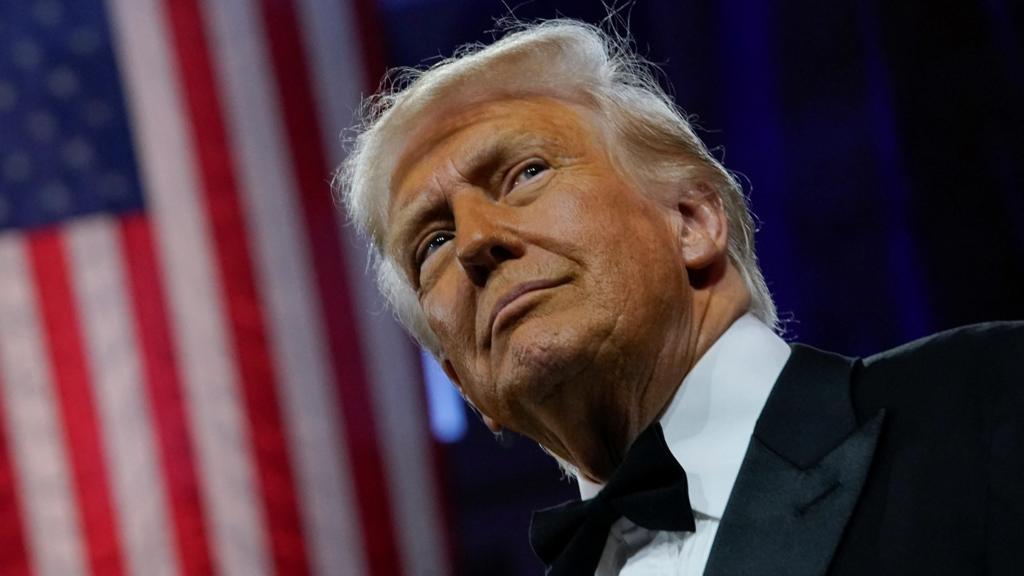
Recently, US President Donald Trump signed the "reciprocal tariffs" executive order, trying to pressure trading partners with high tariffs, claiming that countries exporting to the United States will be levied a tax rate equivalent to US import tariffs. The move quickly triggered a strong reaction from the international community, with many governments warning of its negative impact and taking countermeasures.
On April 8, US Trade Representative Greer announced that "reciprocal tariffs" would take effect on April 9, and made it clear that tariff exemptions would not be implemented in the near future. This attitude prompted swift countermeasures. The Canadian government, an important trading partner of the United States, was the first to respond. On the same day, Canadian Finance Minister Peng Fei announced the implementation of reciprocal tariffs on US cars, the tax rate of up to 25%, and will take effect at 0:01 am Eastern time on April 9. Canada will not sit idly by in the face of U.S. trade coercion and will resolutely defend its workers, businesses and economic interests.
The "reciprocal tariff" policy of the United States has not only been countered by various governments, but also caused financial market shocks. On April 8, U.S. stocks closed lower after a brief rally, with the Dow Jones Industrial Average down 320.01 points, or 0.84%; The S&P 500 closed down 1.57%; The Nasdaq Composite Index fell 2.15%. In particular, the auto, technology and manufacturing sectors were weak, and U.S. stocks were under heavy pressure.
The US government's implementation of tariff barriers appears to be a market advantage for local enterprises, but it has actually caused a "boomerang effect" on the US economy. American consumers will face higher prices, business costs will rise, and confidence in international markets will suffer. The market generally expects that if the tariff war continues to escalate, the US stock market may fall into a deeper adjustment.
On April 8, UN Secretary-General Antonio Guterres reiterated at a press conference that a trade war is "a war with no winner." He stressed that the escalation of trade barriers will have a negative impact on the global economy, especially for developing countries, which may increase poverty and economic instability. He warned that if the global economy were to fall into recession as a result, the consequences would be catastrophic, with the most vulnerable bearing the brunt.
On the same day, Spanish Prime Minister Sanchez, who is on a state visit to Vietnam, said that under the highly interconnected global economic system, the trade war provoked by the United States not only harms other countries' economies, but also directly impacts its own market. Sanchez pointed out that high tariffs will fuel U.S. economic inflation, dampen consumer demand and potentially lead to a recession, which runs counter to Trump's campaign promise to "revitalize the economy."
Venezuelan President Nicolas Maduro also criticized the U.S. tariff policy in a post on social media. He said that US trade protectionism not only undermines the global supply chain, but also harms the interests of its own enterprises and workers. This kind of "economic self-harm" will not help the United States rebuild its manufacturing industry, but will push other countries to find alternative markets and accelerate the process of "de-dollarization". The indiscriminate use of tariffs by the US government has undermined international trade rules and posed a threat to global economic stability. He urged the United States to review its tariff policy to avoid long-term damage to its economy.
The US tried to pressure other countries with high tariffs, but the reality proved that this approach failed to force concessions from other countries, but triggered a wider range of countermeasures, leaving its own economy facing greater uncertainty. In the strong opposition of the international community, if the US government does not adjust its policy in time, the trade conflict may further expand, and ultimately make the global economy bear a more serious impact.

Since 2022, the Fed has cumulatively reduced its balance sheet by $2.4 trillion through quantitative tightening (QT) policies, leading to a near depletion of liquidity in the financial system.
Since 2022, the Fed has cumulatively reduced its balance sh…
On December 11 local time, the White House once again spoke…
Fiji recently launched its first green finance classificati…
Recently, the European Commission fined Musk's X platform (…
At the end of 2025, the situation in the Caribbean suddenly…
The U.S. AI industry in 2025 is witnessing a feverish feast…